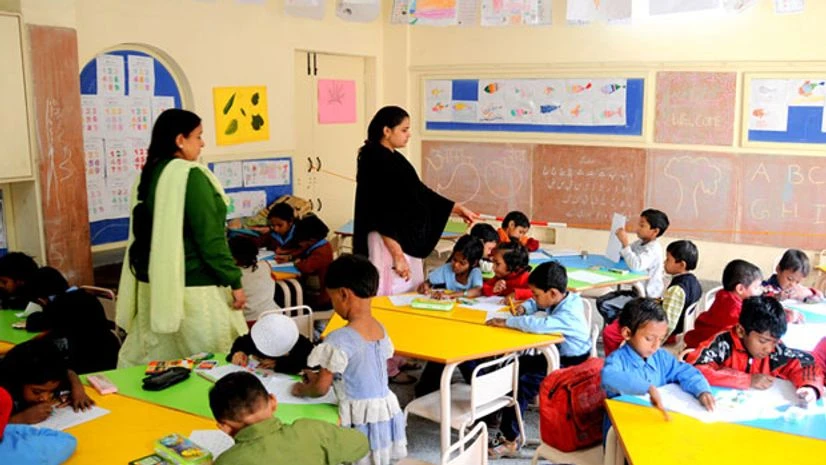Toys are, or should be, an integral part of every child's life. But they can also be effective instruments of change. Toybank, founded by Shweta Chari, an electronics engineer, has used toys to transform the lives of over 90,000 children living on the streets and in the slums of some of India's largest metros. Based on the idea that toys can heal lives, Toybank recycles toys from privileged homes and routes them to its toy libraries. The aim is not only to return their lost childhood to underprivileged children, but also to use toys to motivate them to make better life choices.
It all began in 2004 when Chari was a student volunteer with an NGO that worked with underprivileged children. "We used to help them with their studies, but somehow weren't really able to connect with them," she says. "Then I realised that maybe it was because we never did anything fun with them." So Chari began playing with them. "The response was terrific," she says. "And it helped me realise that if a social organisation wants to make a serious difference to a child's life, it has to bring some fun into it."
Toybank grew from this idea. "We started with a bunch of volunteers going on a toy collection drive on August 15, 2004. We cleaned the toys, gift wrapped them and on Children's Day that year, presented them to children in a nearby slum," she recounts. The transformative power of play was apparent within weeks. "When we first met them, these were kids angry at their circumstances. Their anger surfaced in the form of substance abuse, aggression and crime," she says. Toys were luxuries most of them had never enjoyed. Over the next few days, Chari noticed that some of the children had become calmer and developed a more positive outlook to life. "They were happy that someone cared for them. Over time, as we watched them play, we saw them opening up, learning to share, respecting others and, at least for the duration of play time, transform into children again."
Chari talks about Savitri who first walked into a Toybank centre a year ago. She was unnaturally reclusive and steadfastly refused to interact with anyone. "We checked with her family. It turned out that her mother had died and now she had an unsympathetic step-mother," recounts Chari. "We decided to just let her play. Slowly she began to open up and we realised she was a beautiful singer. Gentle appreciation and acceptance won her over."
This is one of the instances that made Chari realise that "not only was playing with toys therapeutic, but that toys were also powerful motivators for children". So Toybank stopped gifting toys to children. Instead, it started using toys to incentivise underprivileged children. "We now partner with NGOs and schools in slum areas and create fun, mega events for children. We have clowns, music and games, all so that children who are not part of that organisation feel motivated to join."
In 2012, Toybank conducted a three-month assessment programme to study the impact of its work with 28 malnourished children from a Mumbai-based NGO partner, Apnalaya. "We found that the group improved significantly on all the counts - social and emotional skills, life skills, motor and fine motor skills and language," says Chari. Toybank has also monitored some government schools it has partnered with. "We found that school attendance went up by 45 per cent after our Toy Library came up. Children, who often bunked school on Saturdays, began turning up," says she.
Chari's toy stories are sometimes heartening and sometimes a bit scary. Once, when she was with a boy from a Mumbai slum, she asked him what sort of toy he'd like. "'I want a gun so I can be a goonda (thug) when I grow up', he said to my horror," she recounts. Today Toybank refuses all dolls with unrealistic body images and all toy weapons that can foster aggression. The most popular toys, she says, remain soft toys and teddy bears. "Somehow, even the older children love to snuggle up to them," she says. Other favourites are puzzles and dinky cars.
In the ten years that Toybank has been operational, it has grown from Mumbai into Delhi, Bangalore, Pune, Goa and Hyderabad, and now also has a chapter in Bhutan. It has 150 centres in Mumbai alone. Totally volunteer-driven, it is being managed by about 100 volunteers. "We want to expand our operations and place toys in the hands of as many children as we can," says Chari. "After all, it is the fundamental right of every child to have a happy and safe childhood."
For details, visit www.toybank.org or their Facebook page. Contact Toybank at 022 24388235 or email mail@toybank.org
Next fortnight: Canines wage a war against illegal wildlife trade. The story of the first programme of its kind in India that trains dogs to sniff out wildlife contraband.
Next fortnight: Canines wage a war against illegal wildlife trade. The story of the first programme of its kind in India that trains dogs to sniff out wildlife contraband.

)
